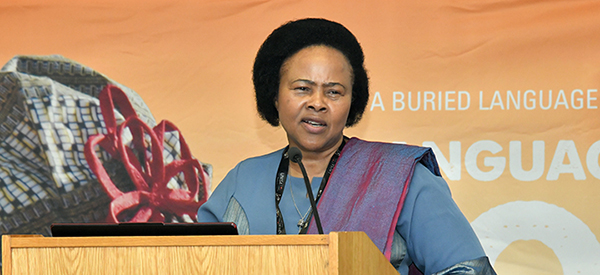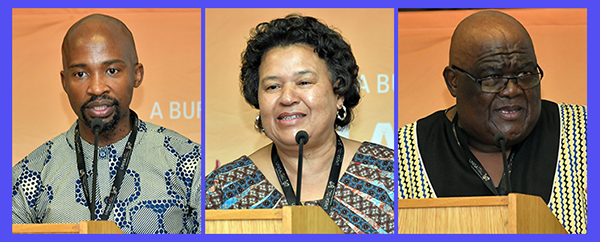
Producing over 40% of teachers in South Africa
On 12 October 2021, Prof Moeketsi Letseka, incumbent of the UNESCO Chair on Open Distance Learning (ODL) at Unisa, hosted a high-level delegation from the Malawian government that visited South Africa on a benchmarking mission.

Prof Moeketsi Letseka (front row, centre), incumbent of the UNESCO Chair on Open Distance Learning (ODL) at Unisa, with the delegation.
The Malawian delegation, led by Modesto Silvester Gomani, Acting Executive Director of the Technical, Entrepreneurial and Vocational Education and Training Authority (TEVETA) based in Lilongwe, Malawi, was in South Africa at the invitation of Barry Masoga, Executive Director: Education Industry Exchange.
Among the distinguished delegates were Prof Joshua Valeta, Director of Open Distance e-Learning (ODeL); Levis Keliyasi Eneya, Ministry of Education; Ishmael Ali, Head of Projects: TEVETA; and Amos Malunga, Senior TEVETA Management and Information Systems Specialist.

Dr Denzil Chetty guiding the delegation through the recently opened mini studio of the Unisa Academic Development Open Virtual Hub.
The day started with a presentation by Letseka. This was followed by a guided tour through the recently opened mini studio of the Unisa Academic Development Open Virtual Hub in the Goldfields Building, led by the technologically dynamic and energetic Dr Denzil Chetty. Chetty introduced the delegation to the fully automated mini studio which was benchmarked against the studio of the University of California, San Diego.
The delegation finished its tour with a visit to the biggest library on the African continent in terms of hard copy books and digital resources. Letseka took the delegation to the quieter fourth floor of the Unisa Library. The visitors were amazed by the sheer size of the structure. The Unisa Library in Pretoria is a majestic building of eight floors packed with rows of books spanning a vast range of disciplines. The visitors were also offered a glimpse of the student computer lab where students mill around throughout the day, either searching for electronic resources or finalising their assignments, long essays or mini dissertations. One of the delegates quipped: "It’s books, books, books, everywhere. Everywhere you look it’s just books."
"I can only hope that the benchmarking experience at Unisa is what the delegation from Malawi was hoping for," said Letseka at the end of the visit.
* By Dineo Horner (Acting Marketing and Communications Specialist, College of Education) and Prof Moeketsi Letseka (UNESCO Chair on Open Distance Learning)
Publish date: 2021/10/27
 Unisa celebrates a project of hope, dignity and student success
Unisa celebrates a project of hope, dignity and student success
 Women vocalists take top honours at Unisa's globally renowned showcase
Women vocalists take top honours at Unisa's globally renowned showcase
 African wealth is dependent on investment in education and development
African wealth is dependent on investment in education and development
 Unisa celebrates matric result success at Correctional Services ceremony
Unisa celebrates matric result success at Correctional Services ceremony
 Unisa ICT Director recognised among acclaimed IT leaders
Unisa ICT Director recognised among acclaimed IT leaders